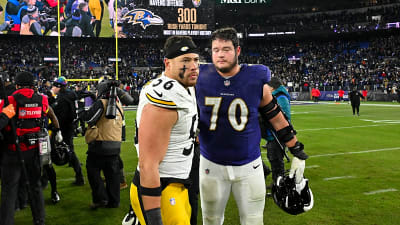
On the heels of a stunning announcement by the NCAA ahead of the pending House settlement announcement, the power that shifted to individual conferences has taken on new form in the Power Four.
NCAA President Charlie Baker all but ended their enforcement of amateurism—a thinly veiled one with the state of college football and basketball—acknowledging that the creation of the new entity, the College Sports Commission, will assume that deferred responsibility.
The question is; what precisely is the College Sports Commission and what role does it play in college sports and the ever-evolving NIL landscape?
What's Proposed in College Sports Commission's Binding Agreement?
Intriguingly, Yahoo! Sports Insider Ross Dellenger's report on the new enforcement entity was tied to the recent Tennessee Senate Bill that allows in-state schools to move freely in the revenue-sharing era of NIL without fear of adverse action by the NCAA.
In essence, the drafted “Membership Agreement” that has been in the works since February would require power conference members to waive their right to sue the commission.
The stunning consequences include being kicked out of the conference or risking being blackballed by the Power Four should schools elect not to sign.
“You have to sign it,” one athletic director said. “Or we don’t play you.”
This new agreement is likely to lead to a multitude of legal issues.
For one, it’s concerning to sign something that proscribes following state laws. Compounding this concern is the potential eviction from the conference should schools fail to comply.
That’s what the Tennessee law set out to combat, as it specifically prohibits adopting and enforcing rules that violate state law and consequential interference with schools’ membership statuses.
Moreover, the law protects schools in the state from not abiding by rules that violate antitrust law.
The Deloitte-run NIL clearinghouse known as “NIL Go,” an entity that will strictly enforce booster payouts, is the subject of that intense scrutiny.
As Dellenger reports, Deloitte officials shared alarming news with athletic directors and coaches at last week’s ACC spring meetings that 70% of past deals from booster collectives would have been denied.
They also stated that they would have approved 90% of deals from public companies.
However, Deloitte prefaced that announcement with figures shared in March, which should give pause regarding the encouraging 90% approval rate.
The value of about 90% of those deals was less than $10,000, and 99% were under $100,000.
That implies a severely restricted future where the clearinghouse will threaten millions in earning potential that athletes previously received via collectives backed by boosters that are thinly veiled as endorsement deals—aka pay for play.
That will likely receive antitrust challenges, but it appears that the members who sign the affiliation agreement cannot be a party to them.
The comments included by athletic directors suggest that schools want to go back to an era where they stop circumventing the rules.
These new state NIL laws are essentially permissions to do just that. It may be enticing for schools to follow them and seek competitive advantages, but the majority is direly searching for stability in the sport.
This membership agreement presents an imperfect solution, particularly when schools feel all but coerced into signing it.
However, since the NCAA declined to be a part of a clear enforcement future, someone must intervene to halt the circumventions and chaos in college sports.
More NIL News
More must-reads:
- All-NBA teams show guards are dominating the league
- Rafael Devers saga in Boston could take another interesting turn
- The 'NBA MVPs' quiz
Breaking News
Trending News
Customize Your Newsletter
 +
+
Get the latest news and rumors, customized to your favorite sports and teams. Emailed daily. Always free!








